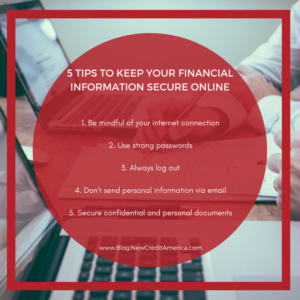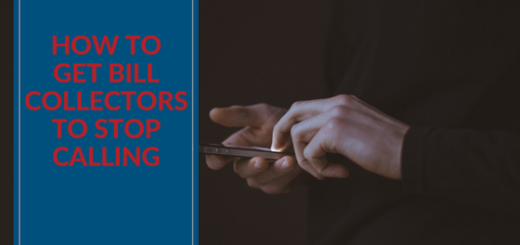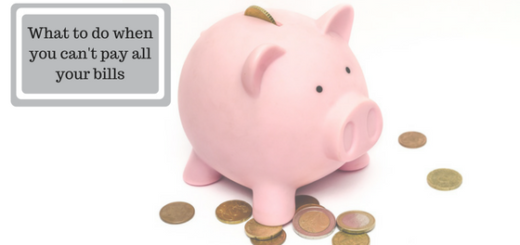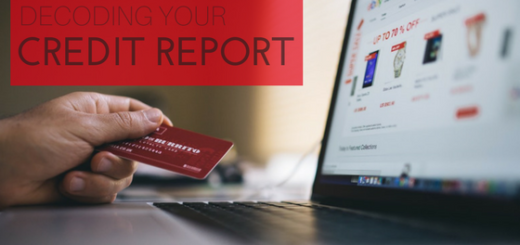How to Keep Your Financial Information Secure Online
 The internet has changed the way we shop, bank and exchange money. For the most part, this is an incredible convenience. But, there’s a downside to this convenience. Now that you can store your financial information online and make financial decisions in one click—you’re vulnerable to identity theft. If you’re not taking the proper precautions to keep your data secure, your personal information can end up in the wrong hands. In 2016 alone, identity theft and fraud cost consumers more than $16 billion. If you have any of your personal information online, here are some tips to help you avoid theft or fraud.
The internet has changed the way we shop, bank and exchange money. For the most part, this is an incredible convenience. But, there’s a downside to this convenience. Now that you can store your financial information online and make financial decisions in one click—you’re vulnerable to identity theft. If you’re not taking the proper precautions to keep your data secure, your personal information can end up in the wrong hands. In 2016 alone, identity theft and fraud cost consumers more than $16 billion. If you have any of your personal information online, here are some tips to help you avoid theft or fraud.
Be mindful of your internet connection
Wireless internet connections can make it extremely easy to get tasks done anywhere you are. But, think twice before you connect to your local coffee shop’s Wi-Fi. Because the goal is for as many people to use it as possible, places like restaurants, hotels and airports have reduced security settings compared to an encrypted network or your mobile carrier’s connection. This means your information could be intercepted by someone else. If you’re going to use one of these unsecured networks, avoid making purchases, checking your bank account or doing anything else that requires you to transmit personal or financial information (your name, address, credit card, etc.).
Use strong passwords
Though using your name or the word password as your go-to password option is easy to remember, it does not keep your computer or personal information very secure from a thief. Instead, use passwords containing letters and numbers. And, avoid using any personal information for your password. If you need to write your passwords down, store the list in a private place. Don’t keep them anywhere someone can easily find (like on your desktop). Also, update your passwords regularly and vary them for every account you have.
Be diligent about logging out
Remember to log off your computer after every use, especially if you’re using a public computer. Don’t stay logged in to any websites such as any shopping websites, social media or email accounts. If someone steals your connection, or logs in after you, your information could be stolen.
Don’t send personal information via email
If you receive an email requesting you to reply with any personal or financial information, steer clear! This is likely a phishing scam. Legitimate companies never ask you to verify sensitive information this way. Or, they will ask you to do so in a secure and private way. Email is less secure than verifying information over the phone.
Secure confidential and personal documents
Be very selective about how you handle or store any sensitive documents or data. Make sure anything you store is in a secure place. And, if you choose not to store something, be careful how you dispose of it. Shred anything with your name, address, credit card or banking information. If you’re going to store any data electronically on the cloud, do your research first. Compare costs and providers to find a low-cost option that provides two-step login (meaning an additional step after entering a password) and data encryption.
If you’re still unsure if your information is secure or if you’ve been hacked, check your credit report every year and your bank statements and accounts regularly. This will help you identify and remedy any fraudulent activity early. Or, if you want to be more proactive than reactive, set up fraud alerts with your bank. This helps you and your bank act quickly in the event of identity theft.


